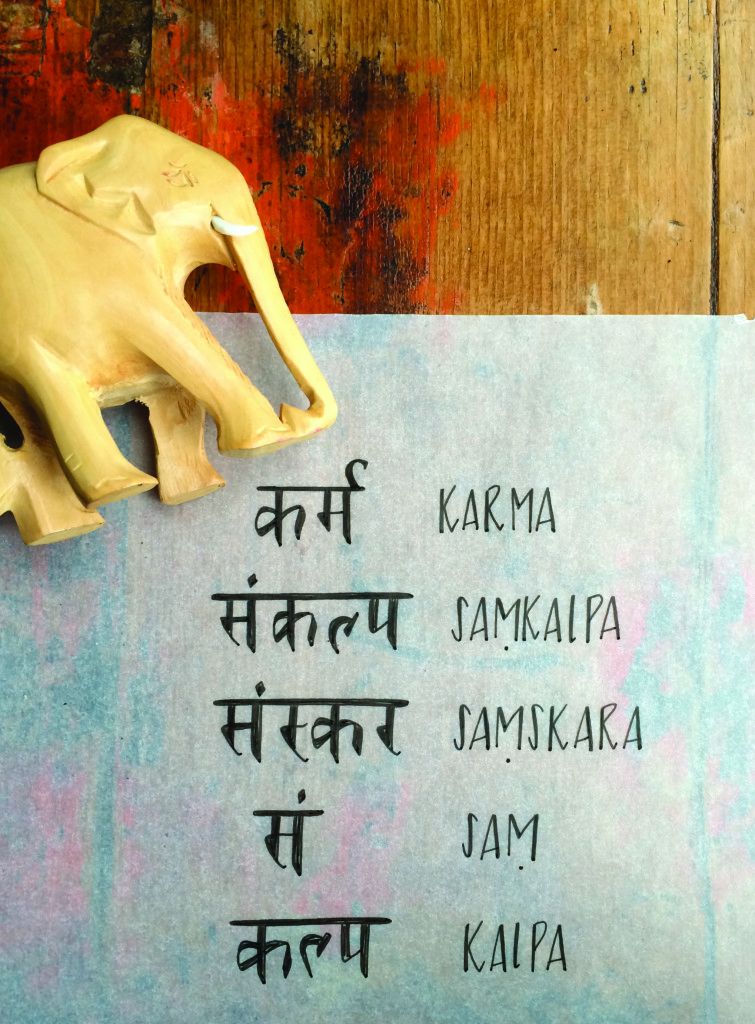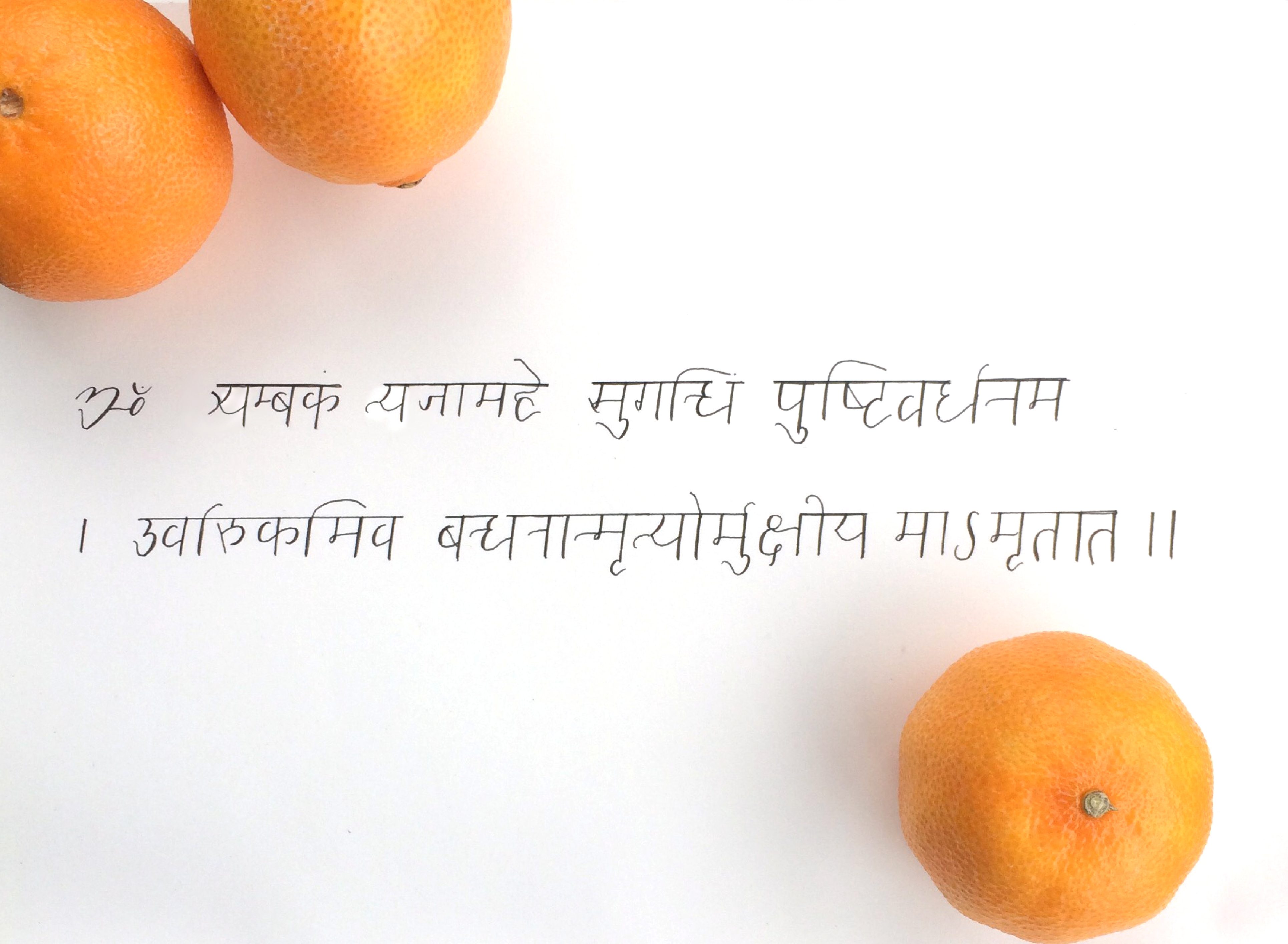By Jim Kulackoski, with artwork by Jillian Schiavi

Everything that exists in creation does so within a state of constant change. Whether we are speaking of energy, a seemingly solid particle of matter or the sentience that animates a living being, for something to exist, it must do so in a continual state of flux. In the Vedic sciences, this dynamic state is called karma, or action.
All of creation, therefore, is karma, and consequently everything in it is subject to its laws. From a Vedic perspective, there is a well-known law of karma: every action has a specific cause that underlies it, and the resulting action precisely reflects this cause. Two examples of the causes of karma are saṃskara and saṃkalpa.
Both saṃskara and saṃkalpa lie at the basis of all action and therefore all of creation. They are like blueprints that both initiate and determine the course of an action and ultimately its result.
Saṃkalpa is a consciously created intention that initiates a specific action. When one is fully present and appreciative of the intention they are acting from, they are utilizing saṃkalpa. The result is the experience of choice and agency in a situation, a true experience of free will.
This is in contrast to the more common cause of action, saṃskara. A saṃskara is a leftover impression or memory resulting from past action. In yoga philosophy, one’s personality is comprised of a vast and complex web of these impressions that form the basis of their beliefs, preferences and limitations. It is the saṃskara that determine the meaning one attributes to the situations they encounter and the actions they commit. Saṃskaras therefore, reflect an individual’s potential for action, his/her “karma” so to speak. An individual’s world, therefore, could be said to be a reflection of his/ her saṃskaras.
When an action results from saṃskara, it is unconsciously chosen and reflexive, merely serving to preserve and reinforce the limited reality created by an individual’s belief system. Although it may appear as though one is acting from free will, most likely, they are simply acting in a pre-programmed manner based on their saṃskaras.
The result is a reality of little choice where one is apparently both subject to and at the mercy of their surroundings and the situations they encounter. One is essentially stuck in an endless cycle, repeating the same karma again and again.
An example could be the experience of someone getting cut off in traffic.
The saṃskaras that form the subconscious identity of the individual would dictate their actions such as feeling anger, indignation, injustice or even road rage. This response, while unpleasant, also reinforces the limited worldview of the actor (the person who was cut off in traffic) and their saṃskaras. In addition, they experience themselves as a limited being in a reality void of choice.
Through the proper awareness of one’s default responses, one could consciously and freely choose a saṃkalpa from which they act, such as patience, compassion or even neutrality.
The actual intention one creates is not important, rather the fact that they consciously create and affect it.
The philosophies and practices of yoga are aimed at cultivating such awareness, allowing one to uncover, understand and ultimately transcend them their saṃskaras. This “freedom from the known” affords them the ability to act consciously in each moment from saṃkalpa, resulting in a life of agency, purpose and satisfaction.
 Jim Kulackoski holds an adjunct faculty position at Loyola University Chicago and runs Darshan Center, where he leads and develops programs such as teacher trainings, workshops and a healing clinic.
Jim Kulackoski holds an adjunct faculty position at Loyola University Chicago and runs Darshan Center, where he leads and develops programs such as teacher trainings, workshops and a healing clinic.
Artwork by Jillian Schiavi

























No Responses to “Living a conscious life”